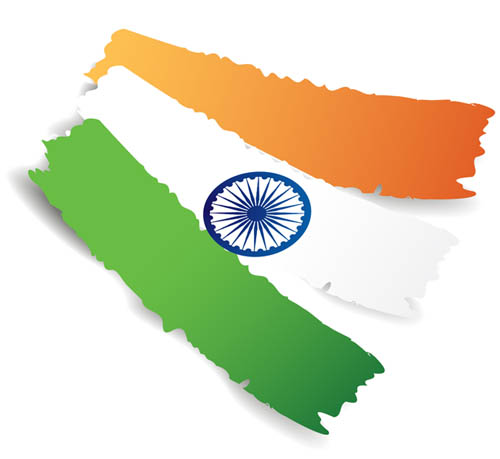WE, THE PEOPLE OF INDIA, having solemnly resolved to constitute India into a SOVEREIGN SOCIALIST SECULAR DEMOCRATIC REPUBLIC and to secure to all its citizens:
JUSTICE, social, economic and political;
LIBERTY of thought, expression, belief, faith and worship;
EQUALITY of status and of opportunity; and to promote among them all
FRATERNITY assuring the dignity of the individual and the unity and integrity of the Nation.
IN OUR CONSTITUENT ASSEMBLY this twenty-sixth day of November, 1949, do HEREBY ADOPT, ENACT AND GIVE TO OURSELVES THIS CONSTITUTION.

If you don’t know these words by now [Tch, Tch], you must learn them pronto…for what kind of an Indian does not know what India stands for?!? By the way…it is the “Preamble” of the Indian Constitution! [And the reason why you hoist the flag on 26th January.] But for those of you who have read and re-read these words — ad nauseam — it is important to stop and ponder for a moment.
Anyway, let us ignore the ignorant bunch for now and get back to the topic at hand. If you have been following the news or even the Rajya Sabha and Lok Sabha proceedings (whatever little time they actually do happen), chances are you have heard several iterations of the two words – “secularism” and “nationalism”. But before I move ahead and explain the reason for my equating the two terms together, we need to briefly revisit their etymological history. [After all, in the entire brouhaha of politics, words often lose…not only their lustre but their meanings too].
Let us talk about nationalism first. The term ‘nationalism’ is basically a rendition directly derived from the term “nation”, which originally came from the Latin term “natio”. Of course, the reason it is important to mention the etymological source of the word is because the term “natio” as it was used in the medieval times did not carry the same political connotation that it does now. It simply meant – people, nation, country. And it was only towards the end of the Middle Ages, when natio gained its political horns […actually, political “thorns” is more like it]. However, in the name of our political correctness, we will resort to only the correct form of the term and keep politics at bay. Thus, nationalism – simply means “people” or “country”. Thus, “People” become the most important force behind the term, and not the petty politics associated with it.
Secularism too deals with people! In fact, for the purposes of this write-up, I decided to invoke the expert. Ladies and Gentlemen, say hello to Talal Asad, the Austrian anthropologist who was born in Saudi Arabia. The reason he has oft-late gained quite prominence is because of his attempt to initiate an anthropology of secularism, which he has dealt with…in quite detail…in his work, “Formations of The Secular”. His book speaks about differentiating between the religious “private” space and the secular “public” space. These two terms (which I have deliberately cordoned off in quotes) are extremely important in the space of the secular debate.
Why?
Because secularism is not what you think it is!!! If you don’t believe me, consider what Gandhi said:
“If I were a dictator, religion and state would be separate. I swear by my religion. I will die for it. But it is my personal affair. The state has nothing to do with it. The state would look after your secular welfare, health, communications, foreign relations, currency and so on, but not your or my religion. That is everybody’s personal concern!”
And that is what the term “secularism” (which stems from the Latin term ‘saecularis’) means in a word – “worldly”, that is – “relating to worldly affairs as opposed to spiritual affairs”. After all, “What conflict of interest can there be between Hindus and Muslims in the matter of revenue, sanitation, police, justice, or the use of public conveniences? The difference can only be in religious usage and observance with which a secular state has no concern.” These words were uttered by Gandhi on January 20, 1942 while he was discussing the Pakistan scheme.
And that is why secularism is probably the most important aspect of true nationalism … working for the upliftment of people, irrespective of who they are. Secularism, thus, must not be seen with contempt (the people, who distort its meaning, should)!































